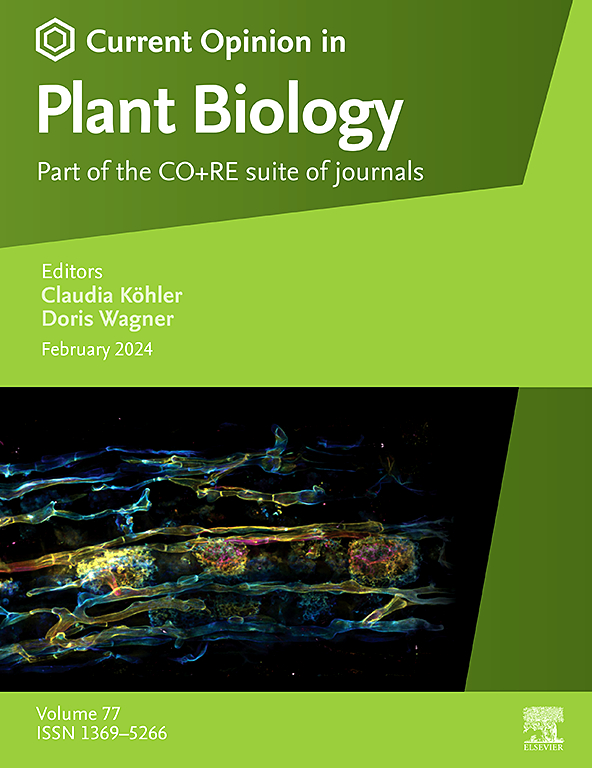GWAS 后分析的新视角:从标记到因果基因,实现更精确的作物育种。
IF 7.5
2区 生物学
Q1 PLANT SCIENCES
引用次数: 0
摘要
由于揭示关键性状基因的方法不完善,农作物育种的进展受到阻碍。全基因组关联研究(GWAS)就是这样一种方法,它能确定与表型相关的基因组区域。全基因组关联研究(GWAS)后分析可预测候选基因,并帮助识别致病突变(CM)。在此,我们将评估后GWAS方法,解决omics数据整合的局限性,并强调在更广泛的公开数据集背景下评估相关变异的重要性。我们回顾了用于 CM 鉴定和等位基因变异探索的生物信息学工具和基因组策略的最新进展。我们还讨论了标记的作用以及为实现更精确育种而进行的标记组开发。最后,我们强调了基于 GWAS 的复杂数量性状 CM 预测的前景和挑战。本文章由计算机程序翻译,如有差异,请以英文原文为准。
New perspectives of post-GWAS analyses: From markers to causal genes for more precise crop breeding
Crop breeding advancement is hindered by the imperfection of methods to reveal genes underlying key traits. Genome-wide Association Study (GWAS) is one such method, identifying genomic regions linked to phenotypes. Post-GWAS analyses predict candidate genes and assist in causative mutation (CM) recognition. Here, we assess post-GWAS approaches, address limitations in omics data integration and stress the importance of evaluating associated variants within a broader context of publicly available datasets. Recent advances in bioinformatics tools and genomic strategies for CM identification and allelic variation exploration are reviewed. We discuss the role of markers and marker panel development for more precise breeding. Finally, we highlight the perspectives and challenges of GWAS-based CM prediction for complex quantitative traits.
求助全文
通过发布文献求助,成功后即可免费获取论文全文。
去求助
来源期刊

Current opinion in plant biology
生物-植物科学
CiteScore
16.30
自引率
3.20%
发文量
131
审稿时长
6-12 weeks
期刊介绍:
Current Opinion in Plant Biology builds on Elsevier's reputation for excellence in scientific publishing and long-standing commitment to communicating high quality reproducible research. It is part of the Current Opinion and Research (CO+RE) suite of journals. All CO+RE journals leverage the Current Opinion legacy - of editorial excellence, high-impact, and global reach - to ensure they are a widely read resource that is integral to scientists' workflow.
 求助内容:
求助内容: 应助结果提醒方式:
应助结果提醒方式:


